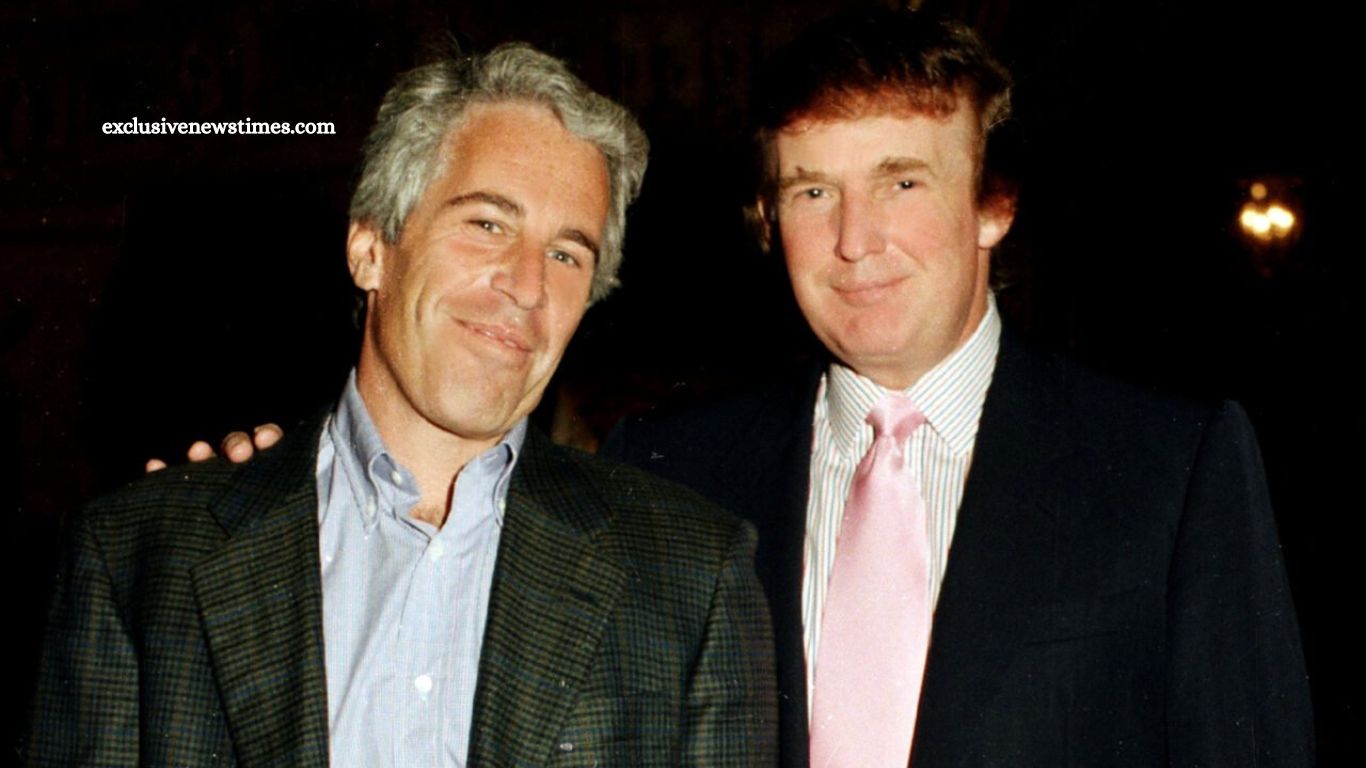The Jeffrey Epstein scandal continues to generate headlines years after his death, and this week, it once again landed squarely in the political spotlight. A hidden camera video released by James O’Keefe’s media group has triggered backlash within the Department of Justice after it appeared to show a senior DOJ official discussing the potential redaction of Epstein-related files for political purposes.
The video, featuring assistant deputy chief Joseph Schnitt, suggested the government might protect Republicans while exposing Democrats in any future release of records. The footage quickly went viral, forcing the DOJ into damage control. What began as an undercover dating app sting has now escalated into a public relations nightmare for the Justice Department.
Read More: Trust Your Intuition: Daily Tarot Guidance with Ceerly
New Twist in the Epstein Controversy
The scandal surrounding Jeffrey Epstein continues to cast a shadow over U.S. politics, and this week, the controversy reached the Department of Justice. A new undercover video released by right-wing provocateur James O’Keefe has sparked outrage, embarrassment, and fresh debates about transparency.
James O’Keefe’s Shift in Targets
O’Keefe, best known for founding Project Veritas, made a career out of secretly recorded “exposés” targeting liberal organizations. While Project Veritas has since collapsed under its own scandals, O’Keefe has resurfaced with the O’Keefe Media Group. In a surprising turn, his latest focus appears to be conservative figures and government officials.
The Hidden Camera Video
On Thursday, O’Keefe’s organization published a covertly filmed video featuring Joseph Schnitt, an assistant deputy chief within the DOJ’s Special Operations Unit. In the clip, Schnitt appears to claim that the government will manipulate the eventual release of Epstein-related files.
According to the edited footage, Schnitt states:
“They’ll redact every Republican or conservative person in those files, leave all the liberal, Democratic people in those files, and have a very slanted version of it come out.”
He also commented on Epstein associate Ghislaine Maxwell’s prison transfer, suggesting she was receiving favorable treatment in exchange for her silence.
DOJ Pushes Back
The Department of Justice quickly responded to the video with an unusual move—posting what appears to be an unedited screenshot of an internal email from Schnitt himself. In the message, Schnitt admitted he met the undercover operative, a woman posing as “Skylar” on the dating app Hinge, but insisted his remarks were personal opinions drawn from media reports, not insider knowledge.
The DOJ’s Office of Public Affairs further emphasized in a statement:
“The comments in this video have absolutely zero bearing with reality and reflect a total lack of knowledge of the DOJ’s review process.”
O’Keefe’s Tactics and Controversial Methods
This incident highlights O’Keefe’s long-standing approach: secretly recorded conversations edited for maximum political impact. While his methods have often been criticized as deceptive, the DOJ’s confirmation of Schnitt’s dating app encounter has only fueled speculation about the agency’s internal handling of the Epstein files.
Political Fallout
The timing of O’Keefe’s release is notable. Representative Thomas Massie (R-KY), a frequent critic of the Trump administration, has been pressuring the DOJ to release more Epstein records. He has also hosted Epstein’s victims in Washington, D.C., amplifying calls for transparency.
Massie argues that the DOJ’s reluctance undermines public trust:
“If you can’t get Republicans to care about an underage sex trafficking ring with hundreds of victims, how are you going to get them to care about the budget?”
This has deepened rifts within the GOP, where Trump allies see the issue as a political liability.
What’s Next for the Epstein Files?
The House Oversight Committee, currently controlled by Republicans, has formally requested more Epstein-related documents from the DOJ. Whether the department complies—or whether the controversy over Schnitt’s recorded comments will force greater disclosure—remains to be seen.
For now, the episode underscores two things: the lingering political toxicity of the Epstein case, and the risks government officials face in a world of hidden cameras and political “honeypot” operations.
Frequently Asked Questions (FAQs)
Who is Joseph Schnitt?
Joseph Schnitt is an assistant deputy chief within the Justice Department’s Special Operations Unit. He was the official featured in James O’Keefe’s undercover video.
What did the video allegedly show?
The hidden camera footage appeared to capture Schnitt claiming the government would redact Republicans’ names from the Epstein files while leaving Democrats exposed. He also speculated about Ghislaine Maxwell receiving favorable treatment in prison.
Has the DOJ confirmed these claims?
No. The DOJ strongly denied Schnitt’s remarks, stating they were personal opinions and not based on insider knowledge or the agency’s review process.
Who is James O’Keefe?
James O’Keefe is a conservative activist and founder of Project Veritas, known for secretly recorded and heavily edited “sting” videos. He now runs the O’Keefe Media Group.
Why is the Epstein case still politically relevant?
The Epstein files reportedly contain names of influential figures linked to Epstein’s activities. Lawmakers, victims, and the public have demanded transparency, making the files a recurring political flashpoint.
What role does Congress play?
The House Oversight Committee has formally requested more Epstein records. Some lawmakers, like Rep. Thomas Massie, are pressing the DOJ for greater disclosure, while others see the push as politically sensitive.
Conclusion
The latest controversy surrounding Jeffrey Epstein’s files highlights just how politically charged the case remains, years after his death. The hidden-camera video released by James O’Keefe has put the Justice Department on the defensive, sparking questions about credibility, transparency, and political bias. While the DOJ insists the comments caught on tape were personal opinions and not reflective of agency policy, the incident has fueled calls from lawmakers and the public for full disclosure of Epstein-related documents.


